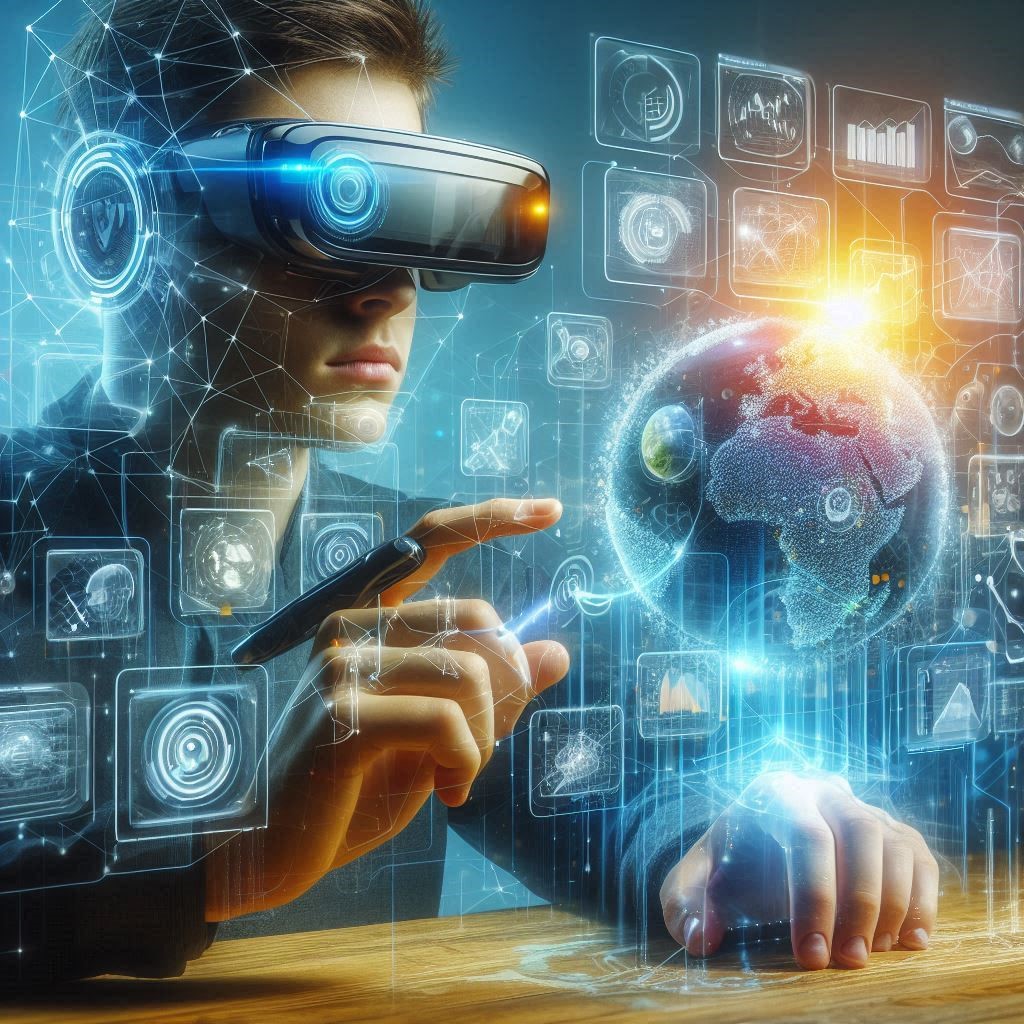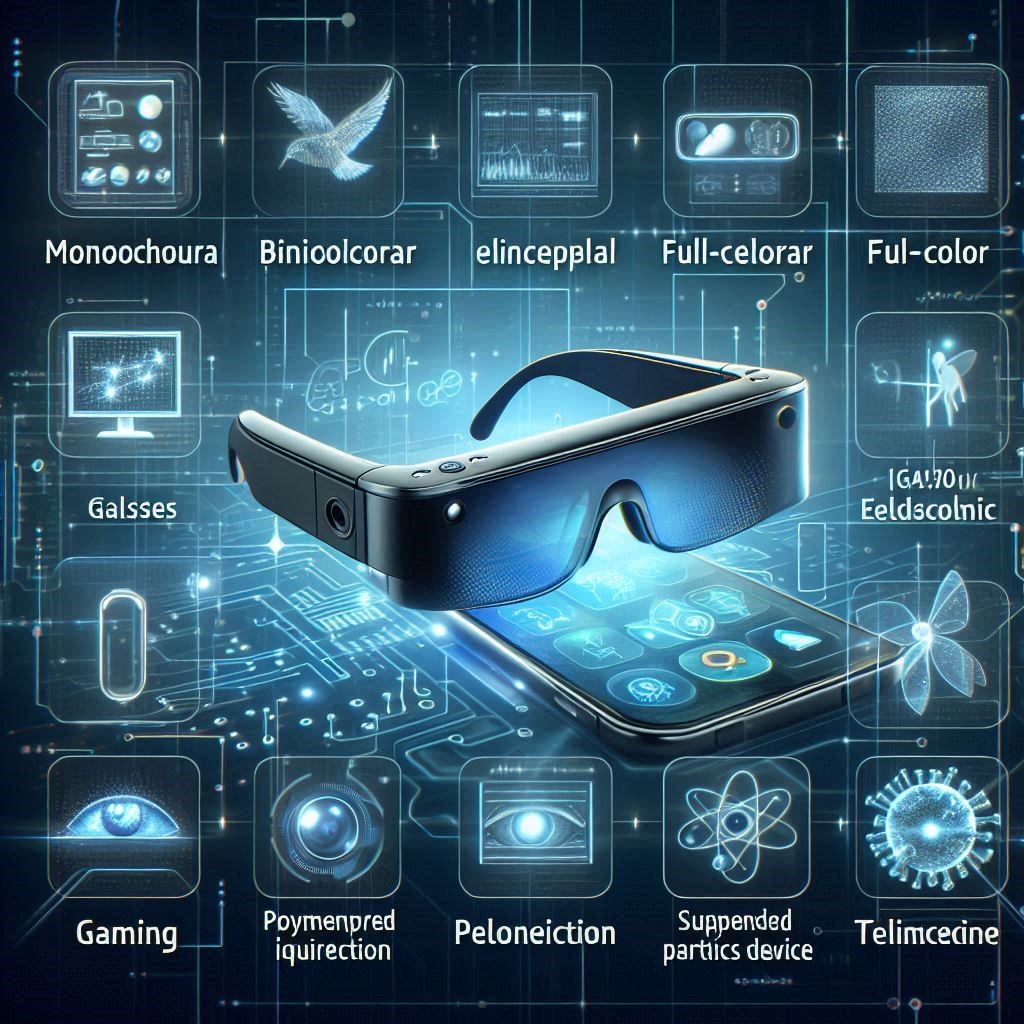The AI impact on smart glasses industry is driving a significant transformation in how wearable technology is designed, adopted, and applied across both consumer and enterprise markets. By embedding artificial intelligence into smart glasses, manufacturers are creating devices capable of real-time object recognition, language translation, voice control, and contextual awareness. This evolution is enabling more intuitive and hands-free interactions, making smart glasses powerful tools in industries like healthcare, logistics, and manufacturing. As AI algorithms continue to improve, smart glasses are becoming smarter and more responsive, offering personalized user experiences and unlocking new applications in augmented reality (AR), navigation, and workplace productivity. The growing role of AI is not only enhancing device functionality but also reshaping the future potential of the entire smart eyewear ecosystem.

At the heart of this transformation is AI-driven contextual computing. Modern smart glasses can now recognize objects, faces, text, and even environmental conditions in real time. This has made them invaluable in industries such as logistics, healthcare, manufacturing, and field services. For example, warehouse workers equipped with AI-enabled smart glasses can receive real-time inventory information and navigation assistance, dramatically increasing productivity and reducing errors. In healthcare, doctors can use smart glasses for remote collaboration during surgeries, with AI processing visual inputs and offering decision support on the spot.
Download PDF Brochure @ https://www.marketsandmarkets.com/pdfdownloadNew.asp?id=148134046
One of the most promising applications lies in real-time translation and transcription, which is empowering global communication like never before. AI-powered smart glasses can convert spoken language into subtitles displayed directly in the user’s line of sight, breaking down language barriers in both personal and professional settings. Similarly, AI voice assistants embedded into the devices allow for hands-free control, enabling users to access information, set reminders, or perform tasks while remaining visually and physically engaged with their environment.
AI also plays a crucial role in augmented reality (AR) overlays, where digital content is projected onto the physical world. Through computer vision and machine learning algorithms, smart glasses can now display contextual AR information that adapts to the user’s surroundings. For instance, a technician wearing smart glasses can see instructions superimposed onto machinery or a tourist might receive historical facts about landmarks simply by looking at them. This kind of seamless interaction between the digital and physical worlds is only possible with sophisticated AI at the core.

The consumer market is also benefiting from AI integration. Companies are developing smart glasses that function as personalized digital companions, offering navigation assistance, wellness tracking, calendar updates, and real-time notifications, all tailored by AI based on the user’s preferences and behavior. With advances in AI miniaturization and edge computing, these capabilities are now possible without relying heavily on cloud connectivity, preserving both battery life and user privacy.
In addition to user-centric features, AI is making strides in enhancing device performance and adaptability. Smart glasses equipped with AI can learn from user interactions to improve efficiency over time. They can also detect anomalies or performance issues, suggesting optimizations or updates. This level of autonomy and adaptability is pushing wearable tech from passive tools to dynamic systems that evolve with the user.
As AI continues to evolve, so too does its potential to redefine the smart glasses industry. The convergence of AI with other technologies such as 5G, edge computing, and advanced sensors is expected to drive even more innovation. As a result, the smart glasses of tomorrow will likely be lighter, more intuitive, and deeply integrated into daily life—both at work and at play.
In conclusion, the AI impact on the smart glasses industry is nothing short of transformative. It is turning what was once considered a novelty into a powerful, multi-functional tool with applications across countless domains. By enabling smart glasses to process and understand the world around them, AI is not just enhancing wearable tech—it’s reinventing it.
Some of the key players in the smart glasses industry include Meta (US), EssilorLuxottica (France), Seiko Epson Corporation (Japan), Amazon.com, Inc. (US), TCL Electronics Holdings Limited (China), Vuzix (US), Lenovo (China), LUCYD EYEWEAR (US), Xiaomi (China), and Huawei Investment & Holding Co., Ltd. (China).
FAQ – AI Impact on Smart Glasses Industry
1. What are smart glasses?
Smart glasses are wearable devices that integrate displays, sensors, and connectivity features into eyeglasses. They offer functionalities like augmented reality (AR), real-time information display, voice control, and hands-free interaction.
2. How does AI enhance smart glasses?
AI enables smart glasses to process data in real time, recognize objects, translate languages, understand voice commands, and provide contextual information through augmented overlays. It turns passive devices into intelligent assistants.
3. What industries benefit most from AI-powered smart glasses?
Industries such as healthcare, logistics, manufacturing, retail, field services, and education are leveraging AI-powered smart glasses for efficiency, hands-free communication, and real-time decision-making.
4. What are some common AI features in smart glasses?
Real-time language translation
Facial and object recognition
Voice-activated commands
Augmented reality overlays
Context-aware navigation and assistance
5. Are AI smart glasses used in healthcare?
Yes. In healthcare, AI smart glasses assist with remote consultations, surgical guidance, patient data visualization, and hands-free documentation, improving both efficiency and patient care.
About MarketsandMarkets™
MarketsandMarkets™ has been recognized as one of America’s Best Management Consulting Firms by Forbes, as per their recent report.
MarketsandMarkets™ is a blue ocean alternative in growth consulting and program management, leveraging a man-machine offering to drive supernormal growth for progressive organizations in the B2B space. With the widest lens on emerging technologies, we are proficient in co-creating supernormal growth for clients across the globe.
Today, 80% of Fortune 2000 companies rely on MarketsandMarkets, and 90 of the top 100 companies in each sector trust us to accelerate their revenue growth. With a global clientele of over 13,000 organizations, we help businesses thrive in a disruptive ecosystem.
The B2B economy is witnessing the emergence of $25 trillion in new revenue streams that are replacing existing ones within this decade. We work with clients on growth programs, helping them monetize this $25 trillion opportunity through our service lines – TAM Expansion, Go-to-Market (GTM) Strategy to Execution, Market Share Gain, Account Enablement, and Thought Leadership Marketing.
Built on the ‘GIVE Growth’ principle, we collaborate with several Forbes Global 2000 B2B companies to keep them future-ready. Our insights and strategies are powered by industry experts, cutting-edge AI, and our Market Intelligence Cloud, KnowledgeStore™, which integrates research and provides ecosystem-wide visibility into revenue shifts.
To find out more, visit www.MarketsandMarkets™.com or follow us on Twitter , LinkedIn and Facebook .
Contact:
Mr. Rohan Salgarkar
MarketsandMarkets™ INC.
1615 South Congress Ave.
Suite 103, Delray Beach, FL 33445
USA: +1-888-600-6441
Visit Our Website: https://www.marketsandmarkets.com/